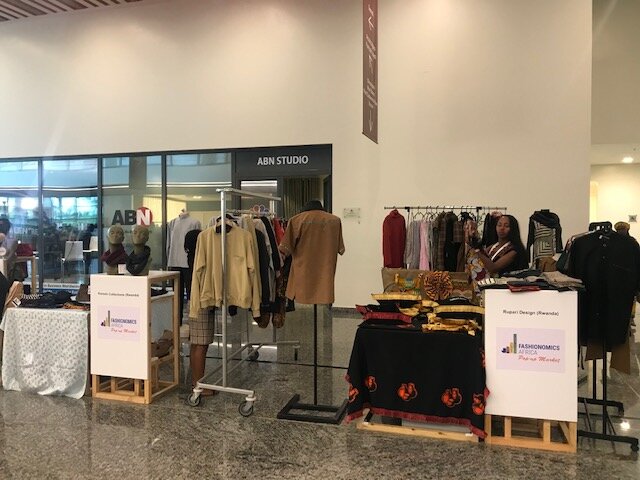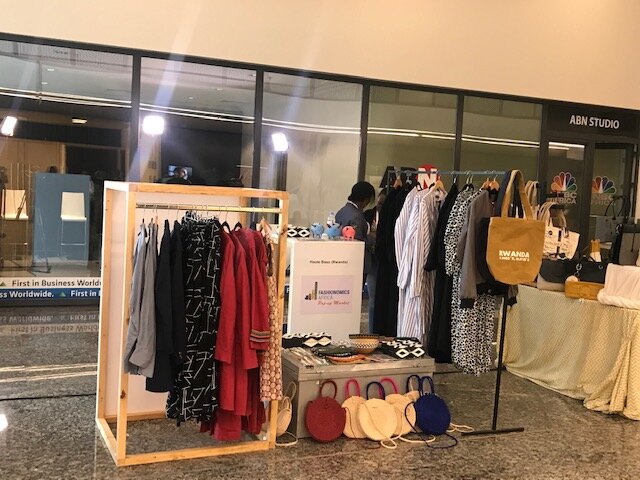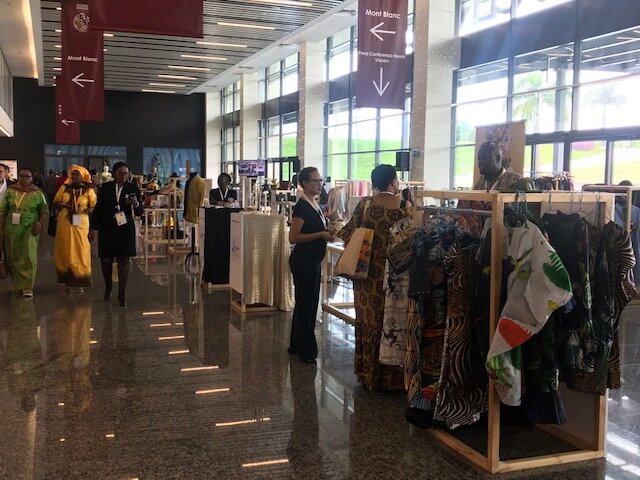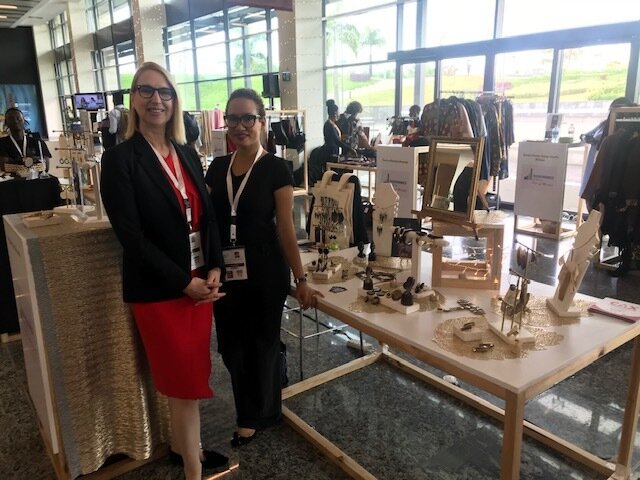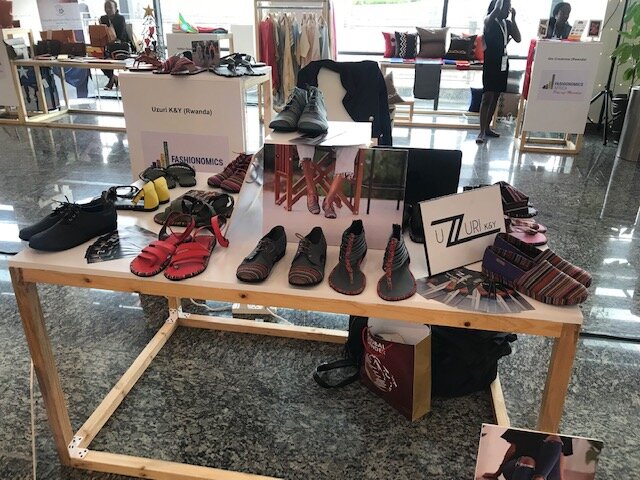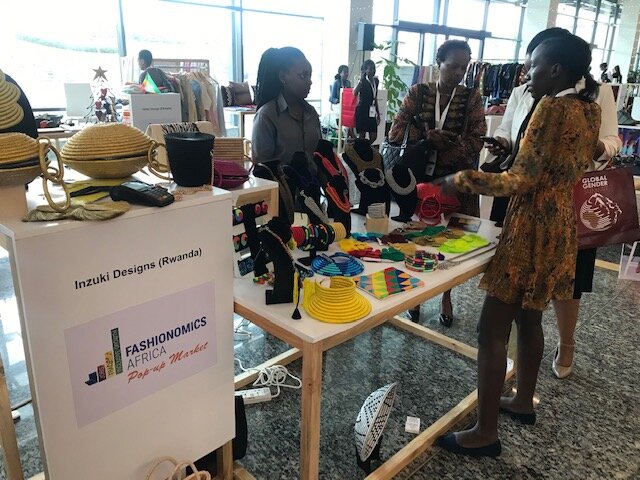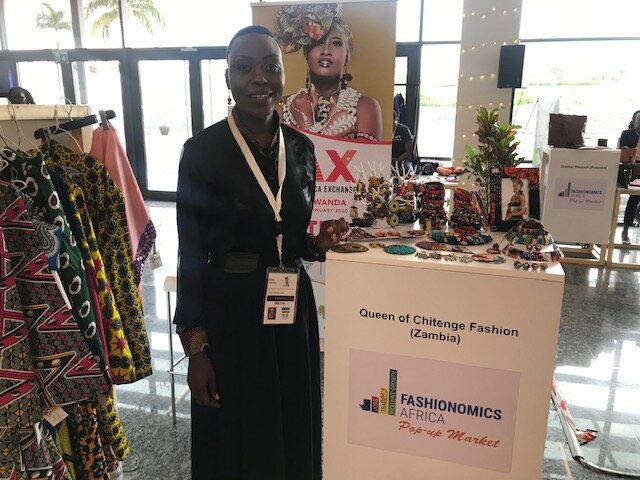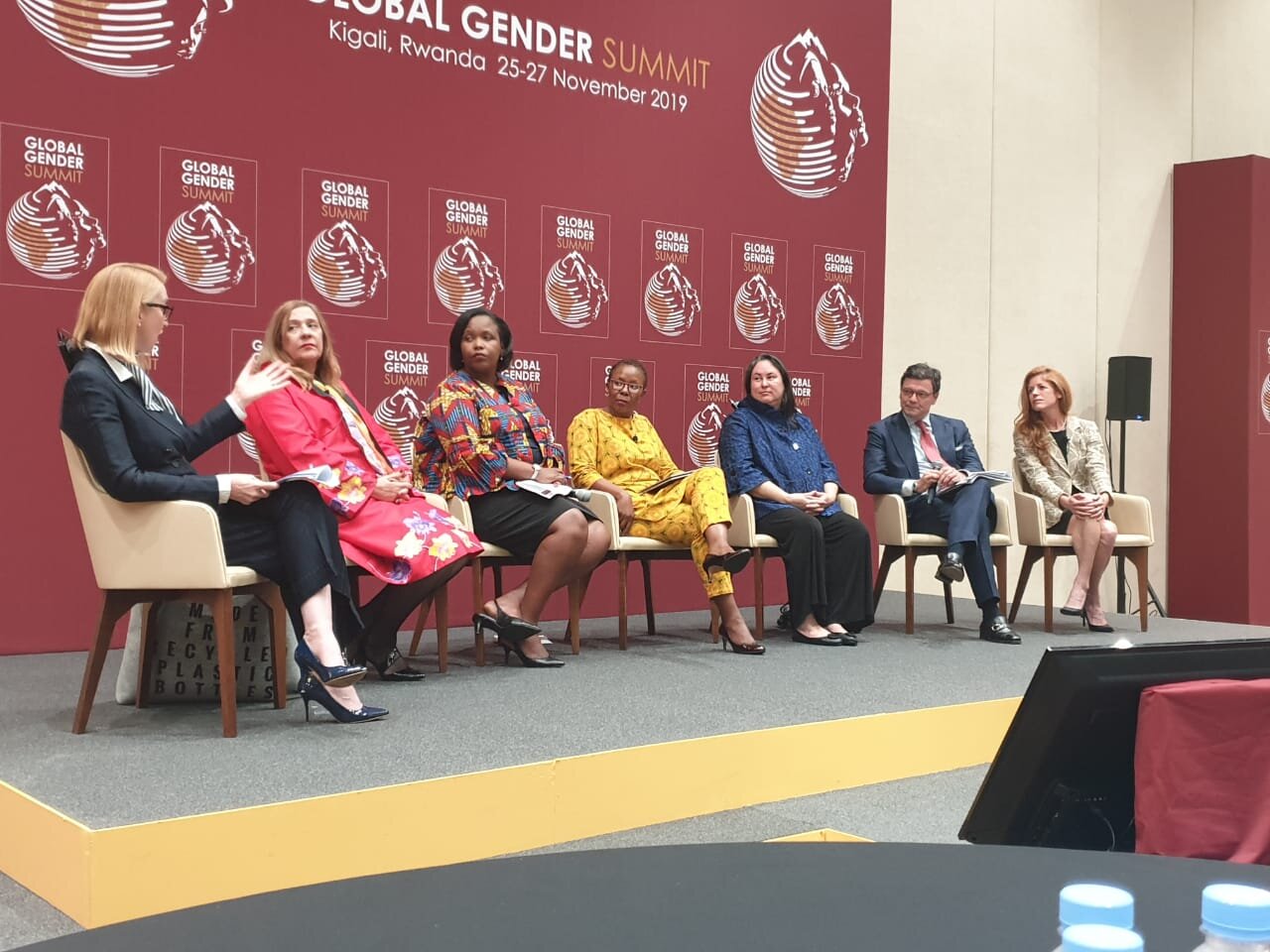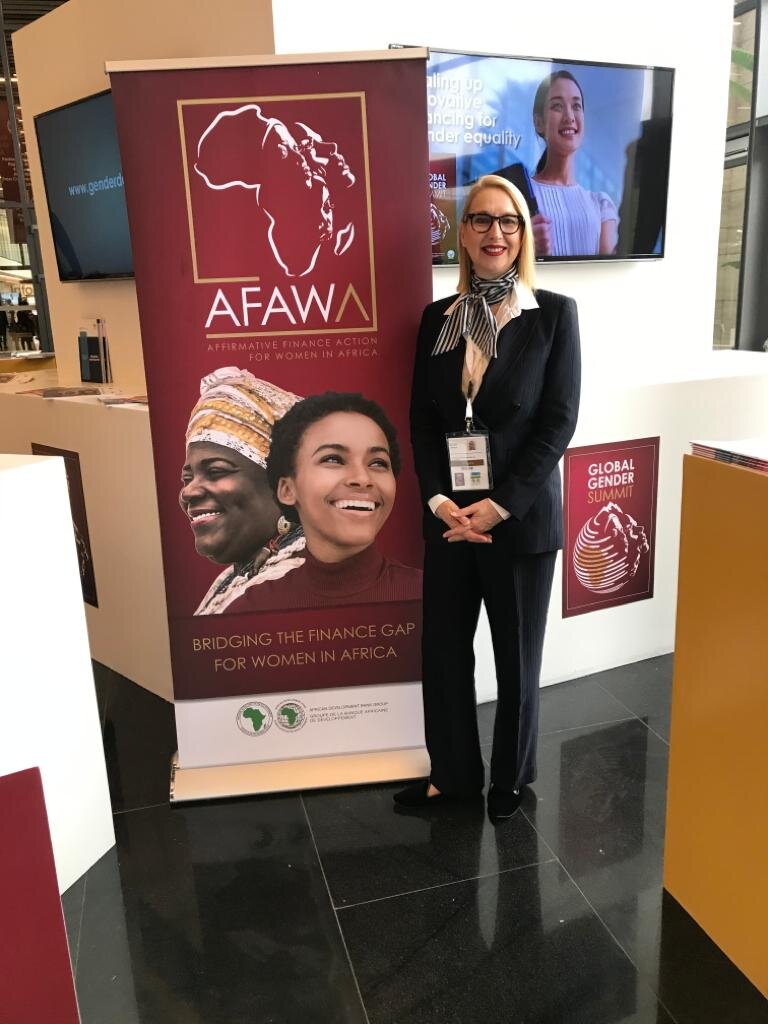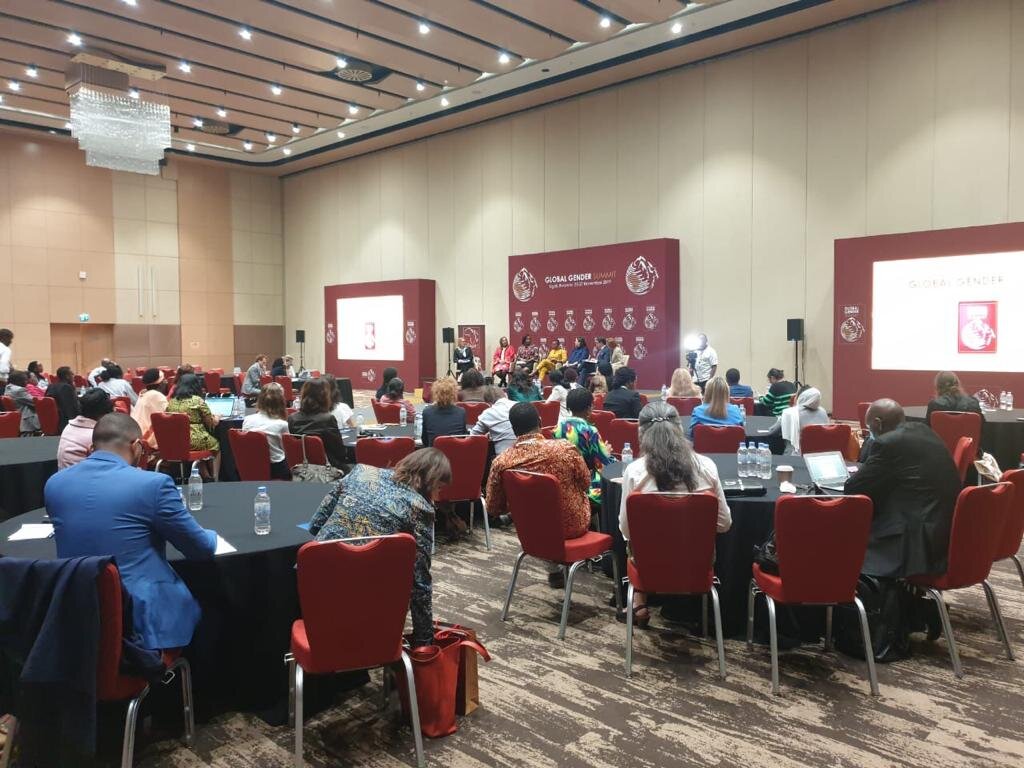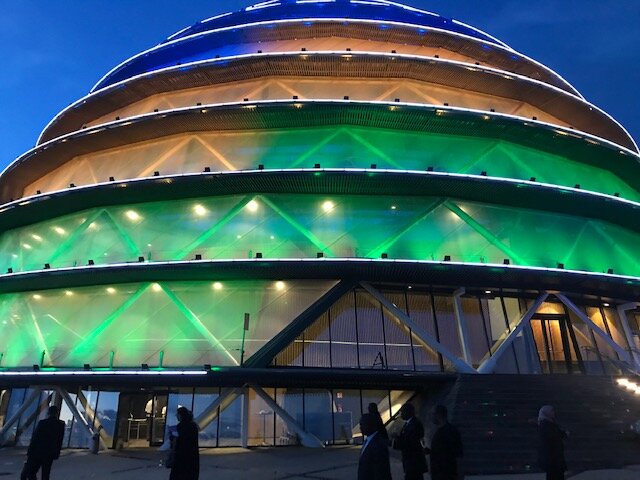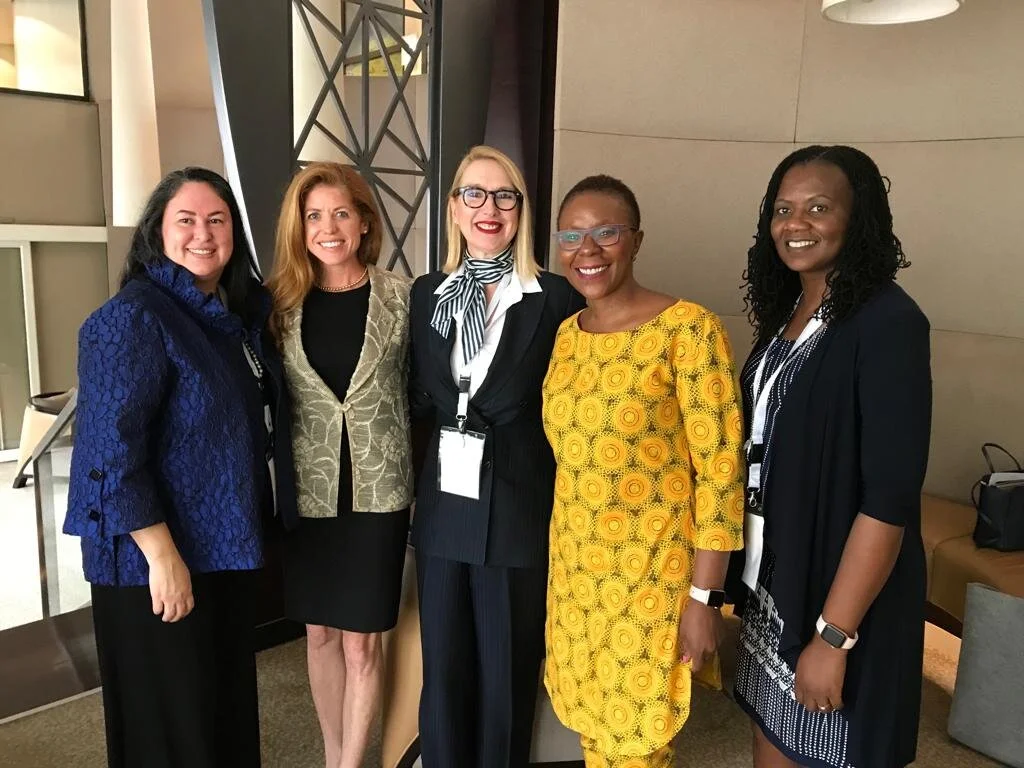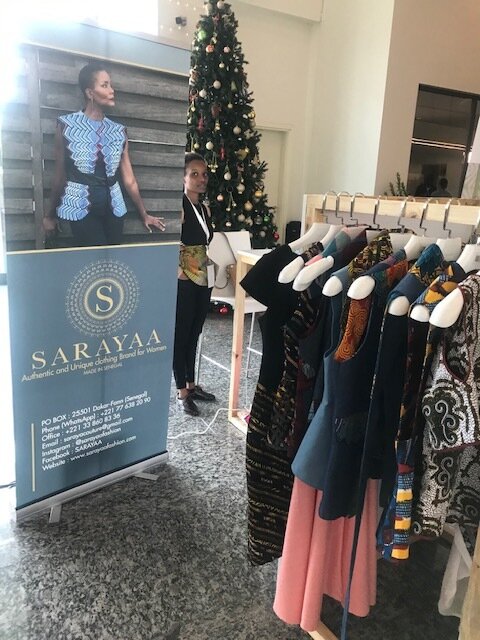The topic of how to unpack constraints to gender equality was the primary focus of the Global Gender Summit held on 25 to 27 November in the beautiful city of Kigali in Rwanda. The event got underway with a glittering Opening Ceremony at the Kigali Convention Centre, featuring welcoming remarks from Dr. Akinwumi Adesina, President of the African Development Bank, and His Excellency Paul Kagame, President of Rwanda. The morning’s programme set the tone for the event as a whole, with a high level panel discussion featuring both opening speakers, and including His Excellency Sahle-Work Zewde, President of Ethiopia; His Excellency Moussa Faki Mahamat, Chairperson of the African Union Commission; and Ms Lerato Motsamai, Founder and CEO, Petrolink.
A packed programme on the opening day started with a plenary session on the subject of Unlocking Women’s Access to Finance in Africa. The discussion focused on best practices, strategies, and innovative solutions to reduce the estimated $42 billion financing gap experienced by African women enterprises. A special emphasis was placed on the African Development Bank’s flagship AFAWA program which aims to transform the women’s financing landscape in Africa. Chaired by Dr. Acha Leke, Chairman, McKinsey Africa, the plenary session featured Dr. Akinwumi Adesina, President, African Development Bank; Ms. Josephine Anan-Ankomah, Group Executive Commercial Banking Ecobank Group; Mr. Kennedy Uzoka, GMD, United Bank for Africa; Hon. Salimata Diop Epouse Dieng, Minister ofWomen, Family and Gender, Senegal; Mr. Andrew Temu, Chairman of the Board, African Guarantee Fund; and Polo Leteka, Founder and Chairman, IDF Capital.
In the quest to develop sustainable value chain economies in key driving sectors (notably agriculture, energy, manufacturing, ICT, healthcare, infrastructure), a special session on Gender Lens Investments in Value Chains was chaired by Lionesses of Africa Founder and CEO, Melanie Hawken. The session discussed the market and financing profiles along the supply-to-demand value chains (from production, processing and distribution, to marketing, sales and services). The objective of the session was to strengthen the case for inclusive and impactful investment at each stage of these value chains by adopting a targeted gender lens in the investment strategy. The session also highlighted the relevance of adopting such a mindset across the sectors to shift the perceptions and ensure finance is made available to the targeted beneficiaries. Panelists in the session included Kathryn Kaufman, Managing Director for Global Women’s Initiatives, OPIC; Polo Leteka, Founder and Chairman, IDF Capital; Elizabeth Vazquez, CEO and Co-Founder, WeConnect International; Amany Asfour, Businessperson and President, International Federation for Business And Professional Women; Ambassador Nicola Bellomo, Head of Delegation of the European Union to Rwanda; and Clare Akamanzi, CEO of Rwanda Development Board.
Getting the discussion underway, chairperson Melanie Hawken, said:
“2.4 billion dollars — this is the magic number we’re discussing here today. 2.4 billion dollars is the estimated value of gender lens capital being applied across the world today and the size of these investments is growing rapidly every year. Judging by the level of media attention and the number of events on gender lens investing taking place around the world the interest of institutions, investors and philanthropists to use their investment portfolios to support women-led enterprises and support opportunities for women is gaining significant traction. So, I’m delighted to be here today with a panel of really great experts to talk about how we can continue to move the dial forward for gender lens investing across Africa in order to leverage the incredible potential of Africa’s women entrepreneurs — to achieve both profit and purpose. And, importantly to talk about how gender investments can support the participation of women along the value chain in key driving sectors, especially those high job creating sectors.”
Following a lively panel discussion, Melanie shared a case study of a woman owned, impact driven business in South Africa that was a great example of the considerable impact that can be made across the value chain with the right kind of investment and access to market support. Thereafter, members of the audience were invited to engage with the panelists in a workshop session, with key questions being submitted to the expert panel on their areas of expertise.
Other highlights of the three day Summit included a number of field visits highlighting investments programmes with gender impact; a showcase of creative industries with the opening of the Fashionomics Africa Pop-Up Market; a number of launches including the AFAWA Risk Sharing Facility, the Launch of the Africa Gender Index, and the Launch of the Fashionomics Africa Digital Platform. The event came to a formal close with a reception for all attendees and speakers, and the opportunity for some final networking.
